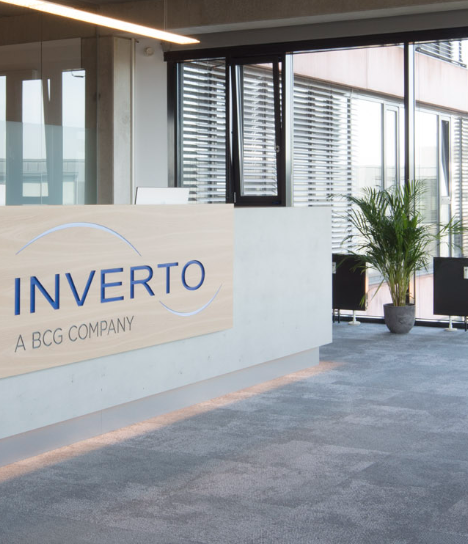Results of the INVERTO Raw Material Study
The rise in energy and raw material prices will not come to an end this year, even though prices for industrial raw materials are currently slightly in decline. But it is not only the prices that are burdening companies, supply and staff shortages are also ongoing challenges. These are the key findings of the latest INVERTO Raw Material Study.
77% of the study participants note limited availability of raw materials. The situation is most challenging for oil and gas (37%), ferrous metals and steel (35%) and chemicals (32%). As in the 2021 study, the shortage of raw materials remains at a consistently high level.
According to 90% of the study participants, rising raw material prices are having the greatest impact on business results. Despite the current price reductions for many industrial metals, 81% of respondents expect moderate or even strong rises to raw material prices in the next 18 months.
The massive increase in energy prices, on the other hand, may have surprised many companies: In last year’s survey, only 27% considered rising electricity prices and 23% rising oil/gas prices as a major threat. Now, energy prices are seen as the second biggest burden on a business’ success at 86%.
Companies need to create transparency
“In order to be able to really assess whether price increases are justified, companies have to create transparency about the raw material content of their preliminary products,” explains Lina Tilley, Principal at INVERTO. On the basis of so-called cost breakdowns, for example, price escalator clauses can be agreed that reflect raw material prices. A majority of 78% say they use such price agreements, which are based on a commodity index. The agreement with the option of “passing on increased raw material costs to the end customer” has fallen – by 13 percentage points compared to 2021. 62% of respondents believe that they can pass on their increased costs.
Increased focus on resilience and flexibility
The Ukraine war increases the focus of procurement organizations on resilience and flexibility in view of future crises. 53% of respondents see themselves confronted with reduced availability of raw materials due to the Ukraine war. But the impact generally seems manageable – with 35% of those affected saying they can guarantee a continuous supply of raw materials. The analysis of the supply chain and optimization of inventories (59%) as well as optimization of the raw material supplier base (53%) continue to receive the greatest focus in raw material management according to the respondents.
Looking to the future, the participants of the study expect lasting changes for procurement with a focus on resilience and flexibility in the supply chain. The majority of 82% expect improved risk management in the supply chain and increased use of dual or multiple sourcing (63%).
What companies can do
In the current situation, Tilley also advises companies to establish alternative suppliers and sources of raw materials for critical categories which are at risk of supply shortages: “Dual and multi sourcing enables companies to fall back on several options in the event of impending shortages.” Furthermore, she recommends developing sustainable measures to reduce energy and raw material consumption: “In the future, companies must address the topics of sustainability and resource-minimal production centrally with the support and leadership of their procurement organization. This will make them more resilient to rising energy & raw material prices through lower consumption.”
More cross-functional cooperation in future
The need to respond to recent crises has shown that teams within organizations have to work together and prioritize more flexibly in the future. This includes, in particular, quickly adapting to current developments as well as continuous monitoring of raw material markets in order to respond effectively to price shocks and crises. Dedicated task forces for focus topics and the implementation of digital tools are appropriate measures for dealing with current challenges.
Methodology
Almost 90 decision-makers in procurement, mainly from German-speaking countries and the UK, took part in this year’s raw materials study. Two thirds of the respondents come from the manufacturing industry, especially automotive and mechanical engineering. In addition, contacts from logistics and trade also took part. More than 60% of the companies surveyed achieve an annual turnover of over 250 million euros. The survey period was from May to June 2022. Interested parties can download the study results here:
Download the raw material study free of charge
Get in touch with our contact persons


